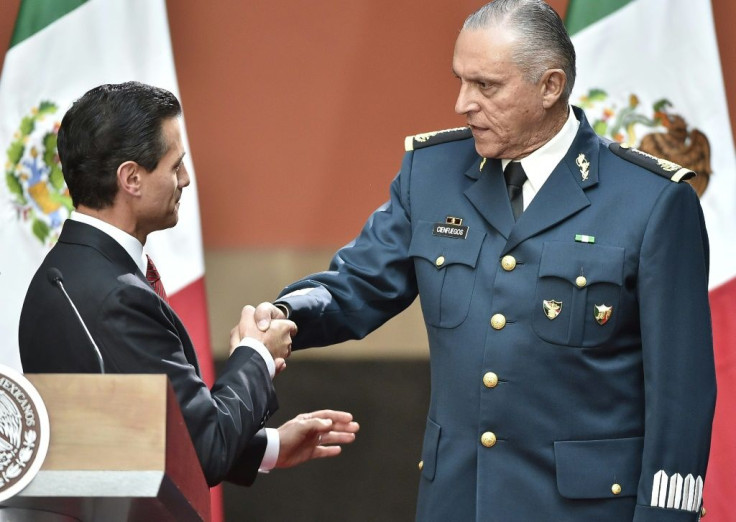Will Mexico's 'Godfather' Ever Stand Trial After US Release?
Mexico has vowed "no impunity" for its former defense minister accused of drug trafficking, but experts say political interests and the military's power put the chances of a trial in doubt.
The shock decision by US authorities to drop charges against Salvador Cienfuegos and send him home for possible prosecution was welcomed by the Mexican government, which pushed hard for his return.
"There is no impunity for anyone and at the same time we will not allow crimes to be fabricated," President Andres Manuel Lopez Obrador told reporters.
He denied he had faced pressure from the military to bring home the retired general, nicknamed "The Godfather," who was detained at a Los Angeles airport in October while on a trip with his family.
But Lopez Obrador also underscored the importance of the "prestige" of the armed forces which he called "an institution fundamental to the Mexican state."
The indictment of Cienfuegos, a key figure in ex-president Enrique Pena Nieto's 2012 to 2018 government, on drug trafficking and money laundering charges, caught Mexico by surprise.
It triggered a diplomatic row that experts said could have jeopardized the countries' cooperation in fighting powerful cartels.
The Mexican government complained to the United States that it was being kept in the dark about the case of the 72-year-old.
Francisco Rivas, head of the National Citizen Observatory, a civil society group, said it was "very unlikely" that Cienfuegos would stand trial in his home country.
"In Mexico we don't distinguish ourselves with our ability to investigate and punish criminals," he told AFP.
Lopez Obrador, who has close ties to US President Donald Trump, got Cienfuegos back to "keep (the military) happy," Rivas said.

The arrest put Lopez Obrador in an uncomfortable position because the self-styled anti-corruption crusader has close links to the military and has given it increased responsibilities.
"Cienfuegos's release from US custody is a win for the Lopez Obrador administration," the political risk consultancy EMPRA said in a briefing.
"Further investigations and the prosecution of Cienfuegos will, however, prove politically difficult for the president who has already found it hard to balance this investigation with his relationship with the military."
As well as creating the National Guard, a militarized police force, the president has given the armed forces control of the ports and customs and awarded them construction projects, including Mexico City's new airport.
According to federal prosecutors in New York, Cienfuegos was accused of conspiring to produce and distribute cocaine, heroin, methamphetamine and marijuana in the US.
But the US Department of Justice this week unexpectedly asked New York Judge Carol Amon to release Cienfuegos so that Mexico can hold its own probe and potentially try him.
Amon granted the request on Wednesday, saying she had "no reason to doubt the government's determination that the Mexican prosecuting authorities sincerely wish to pursue an investigation and possible prosecution."
Mexican Foreign Minister Marcelo Ebrard said the general would return as a free man, hailing the agreement as an "act of respect" by the United States.
He said Mexican prosecutors would study the evidence that they received from the US Drug Enforcement Agency (DEA) before deciding whether to put Cienfuegos on trial.
Javier Oliva, a specialist in military affairs at the National Autonomous University of Mexico, believes that the charges were dropped because there is "no evidence" against the former defense chief.
US prosecutors had alleged that Cienfuegos abused his position "to help the H-2 Cartel, an extremely violent Mexican drug trafficking organization."
But Oliva was skeptical that the former defense minister had ties to what he described as a "low-profile" gang.
"His detention was arbitrary. There was no basis for the accusations," he said.
© Copyright AFP 2024. All rights reserved.





















